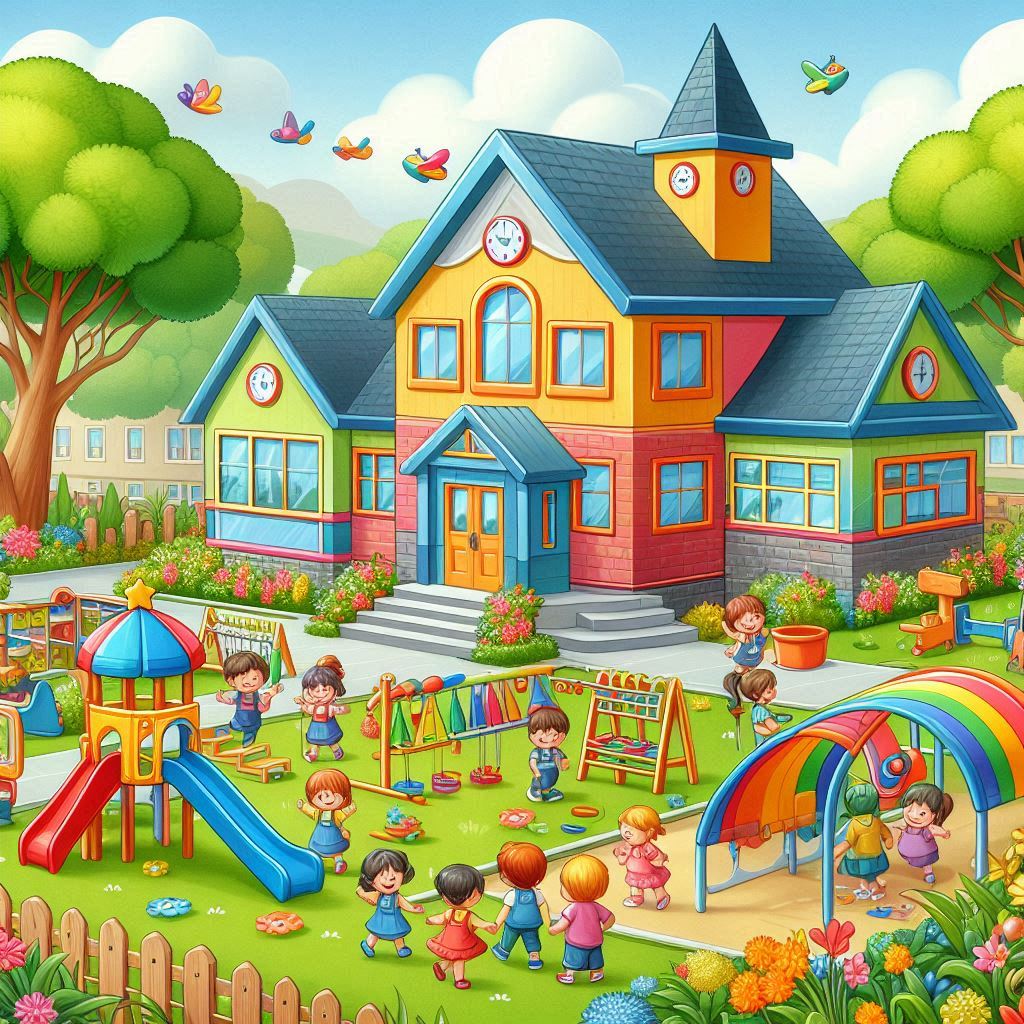Introduction
Choosing the right preschool is a monumental decision that sets the foundation for your child’s educational journey. With so many options available, finding the perfect “preschool near me” can feel overwhelming. This guide aims to simplify the process by providing you with key insights and actionable steps to find the best preschool for your little one.
What to Look for in a Preschool
Curriculum and Learning Approach
A preschool’s curriculum is the heart of its educational philosophy. Look for programs that emphasize a balanced approach, blending play-based learning with structured activities. Whether it’s a Montessori, Reggio Emilia, or traditional curriculum, ensure it aligns with your educational values and your child’s learning style.
Teacher Qualifications and Student-Teacher Ratio
Qualified teachers are crucial for a positive preschool experience. Inquire about the teachers’ educational backgrounds and experience. Additionally, a low student-teacher ratio ensures that each child receives adequate attention and support.
Safety and Cleanliness
Safety is paramount when selecting a preschool. Check that the facility adheres to strict safety protocols, including secure entrances and exits, childproofing measures, and regular cleanliness routines. A clean environment minimizes the risk of illness and creates a comfortable space for learning.
Location and Convenience
The preschool’s location should be convenient for your family’s daily routine. Consider the proximity to your home or workplace, as well as the availability of transportation options. A nearby preschool can reduce stress and ensure that your child arrives on time.
Types of Preschools
Montessori
Montessori schools focus on child-led learning, where children explore their interests at their own pace. This approach fosters independence and critical thinking skills.
Waldorf
Waldorf education emphasizes creativity and imagination. It incorporates arts, crafts, and outdoor play into the curriculum, promoting holistic development.
Reggio Emilia
The Reggio Emilia approach is centered around collaborative learning and community involvement. It encourages children to express themselves through various mediums such as art and storytelling.
Traditional Preschools
Traditional preschools offer a structured environment with a set curriculum. They often include a mix of academic and play-based activities to prepare children for kindergarten.
The Benefits of Preschool Education
Social Skills Development
Preschool provides a social setting where children learn to interact with peers, share, and collaborate. These experiences are essential for developing strong social skills.
Cognitive and Language Skills
Early education stimulates cognitive development and language acquisition. Activities like storytelling, puzzles, and group discussions enhance vocabulary and critical thinking.
Emotional Growth
Preschool helps children build emotional resilience. They learn to manage their emotions, develop empathy, and gain confidence in a supportive environment.
Physical Development
Physical activities in preschool promote motor skills development. Playtime, crafts, and outdoor games improve coordination and overall physical health.
Steps to Find the Best Preschool Near Me
Research and Recommendations
Start by researching preschools in your area. Seek recommendations from friends, family, and online parenting groups. Reviews and testimonials can provide valuable insights into the quality of a preschool.
Visiting and Touring Preschools
Schedule visits to the preschools you’re considering. Touring the facilities allows you to observe the environment, interact with staff, and gauge the overall atmosphere.
Questions to Ask During a Visit
Prepare a list of questions to ask during your visit. Inquire about the daily schedule, discipline policies, teacher qualifications, and communication methods with parents.
Trusting Your Instincts
Your instincts are a powerful tool in this decision-making process. If a preschool feels right and meets your criteria, it’s likely a good fit for your child.
Understanding Preschool Costs
Average Costs
Preschool costs can vary widely based on location and type of program. Research the average costs in your area to set realistic expectations.
Financial Aid and Scholarships
Many preschools offer financial aid and scholarships to families in need. Inquire about these options to help manage costs.
Budgeting Tips for Parents
Create a budget that includes preschool expenses. Factor in tuition, supplies, and any additional fees to ensure you’re financially prepared.
Transitioning to Preschool
Preparing Your Child Emotionally
Talk to your child about what to expect at preschool. Reading books about preschool and visiting the facility together can ease anxiety.
Tips for a Smooth Transition
Establish a consistent routine leading up to the first day. Gradual introductions to the new environment can help your child feel more comfortable.
Setting Expectations
Set clear expectations for behavior and routines. Communicate with the preschool staff to ensure a seamless transition.
Conclusion
Choosing the right preschool is a significant step in your child’s early education. By considering factors like curriculum, teacher qualifications, safety, and location, you can find the perfect “preschool near me” that meets your family’s needs. Remember to trust your instincts and take your time in making this important decision.
FAQs
How do I know if a preschool is good for my child?
Look for a preschool that aligns with your educational values, has qualified teachers, and maintains a safe and clean environment. Visiting the preschool and asking questions can also help gauge its suitability.
What age should my child start preschool?
Most children start preschool between the ages of 3 and 4, but it can vary based on individual readiness and family preferences.
How can I prepare my child for preschool?
Prepare your child by discussing what to expect, visiting the preschool, and establishing a routine. Reading books about preschool can also help ease any anxiety.
What are the different types of preschool curriculums?
Common preschool curriculums include Montessori, Waldorf, Reggio Emilia, and traditional programs. Each has a unique educational approach and philosophy.
How can I find financial aid for preschool?
Inquire with preschools about financial aid and scholarship options. Some community organizations and government programs also offer assistance to families in need.
